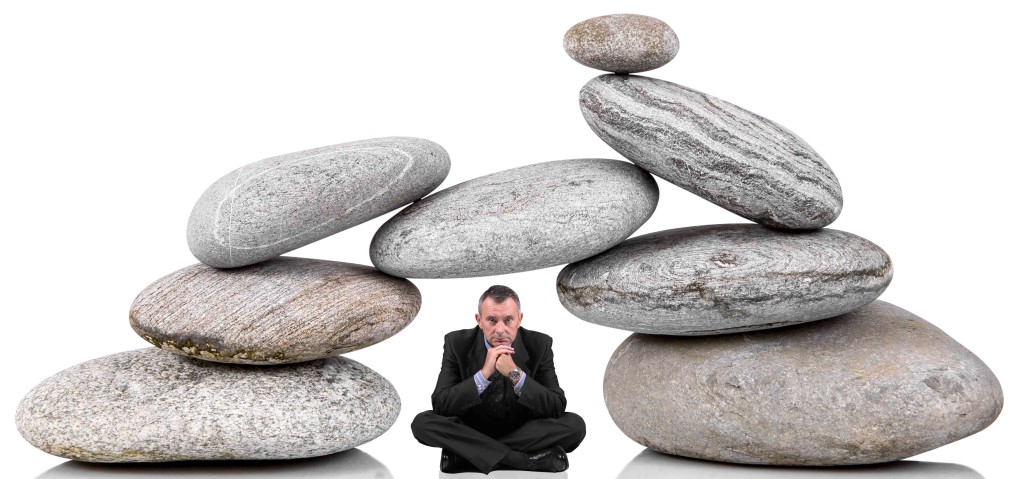Do You Under-value yourself?

In large corporations in 2021, according to Catalyst, 26% of CEO’s and MD’s are women. while there’s been progress, the difference is still remarkable. The gap though is far more noticeable when we look at women in their own business … where they’re responsible for everything including selling. According to The Australian Small Business and Family Enterprise Ombudsman, Bruce Billson, about 38% of small businesses in Australia are owned by women. Fantastic, right!? Here’s the problem. Only 3% of female-owned businesses turn over $1 million a year or more according to statistics amalgamated on the Leaders in Heels website. That’s significantly lower than male-owned businesses. If you aren’t in that high achieving and profitable 3%, you may think to yourself, that’s OK. It’s not important to me to earn that amount of money or have that status. And if that works for you, fantastic. However, the challenge with not prioritising earning a decent living is that so many women are falling short of their potential expression and income. Many women in their own businesses are on or close to the breadline. The owner doesn’t have enough coming in to pay themselves a salary. The consequences of not getting this part of the puzzle right can be significant. In Australia, SBS ran a program in 2017 on Insight called “Women on the Edge” examining the sad situation for many women over 50 who had not managed their financial situations well. Why are women so much less successful than their male counterparts, particularly in SME’s? Don’t we work as hard? We certainly put in the hours we can. If we have children, we often go back to work when the kids are in bed. If we don’t have kids, you’ll probably find us putting in crazy hours including weekends. It’s certainly not a question of whether we’re smart enough. In many subject areas, more women are graduating at increasingly higher levels than men these days. Here are a few ideas of why we might be less successful: Women tend to select service areas for their business that may not be as financially lucrative yet make a contribution to the bigger picture such as the fabric of our society. For female-owned businesses, growth tends to be funded from cashflow or credit instead of external investment. We can be quite risk averse and therefore may be reluctant to go after big opportunities or to invest to get a potential return. We get paid in other currencies such as work life balance and control. One of the biggest challenges for women running their own business, though, lies in mindset. We are often our own worst enemies. We don’t see our value because we don’t recognise our own talents and capabilities or, because we can do something easily, we figure it can’t be rocket science. In that case, we shouldn’t be charging so much for it. We don’t feel confident going after opportunities even though we often KNOW we can fulfil them. We worry about what others think of us. We take business personally and while the personal touch in business is wonderful, taking it personally can get in the way of learning from our mistakes, and feeding that learning back into our business practices. Money can be a difficult topic to discuss. A great mentor of mine, Matt Church, used to say “We get paid the money we believe we’re worth”. And he’s right. It’s taken me years, thousands of hours of study, reflection and seeing the results of my work to finally get that what I do is valuable. I see this scenario playing out with my clients regularly. And it causes them great frustration, often reinforcing their feeling of not being good enough. Here’s some very simple advice to start them moving in the right direction: Don’t take it personally. When we take business personally, we can experience difficulty handling rejection, feedback, even differences of opinion which can be perceived as conflict. We need to recognise that business is a combination of art and science. Some areas of performance can be measured while other areas of the business are more about conducting an educated experiment, getting feedback and using that feedback to improve what we offer our clients. Instead of it being personal, step back to gain a bigger picture perspective to put things into a realistic context. Unpack situations to separate out what happened, how you interpreted it and then how you responded. It’s useful to open up possibilities other than you being responsible or the centre of attention whether positive or not. Set up scorecards that help you objectively measure success so you can play the game of business. Take on a male mentor to learn how they do it. You can always customise your approach later so it feels more natural. Reclaim your strengths and capabilities. One of the key challenges with feeling that you’re not good enough – also known as the Imposter Syndrome – is that we tend to focus more on weaknesses and failures than we do on strengths and successes. Sit and consider what you do really well. Once you’ve completed this list, ask others you trust to give you some feedback on what they consider to be your strengths and capabilities as a business owner or leader. If you’re not sure what they mean, ask for examples of where they’ve seen that play out. Then sit with their responses to see if you can recognise what they’re talking about and if you agree. A good test is to stand in front of the mirror and tell your reflection that you’re great at XYZ while paying attention to your response. Understand the value of what you offer. Work strengths and capabilities are certainly important. However, unless and until they offer some benefit, they have no commercial value. Take each of your strengths and capabilities and consider how they would benefit an employer or a client. For example, if you’re a talented trouble-shooter, the benefit could be that you help your clients or
7 ways to Strengthen Resilience

Yes, life is uncertain. There is very little that occurs to us on a day-to-day basis that we can control. Yet, we do our best to to reduce our feeling of vulnerability and restore some feeling of certainty. The truth is we can’t control much at all in our external environment. Life can be messy, chaotic and even unfair. We may be hit with health issues, redundancy, divorce, death of loved ones, being passed over for promotion, losing our financial security or conflict in our work environment. It’s easy to fall victim to what occurs. The only thing we control is oiur response to what comes at us. This is where resilience comes in. Resilience is the ability to bounce back after life’s inevitable setbacks. It’s the ability to put things into perspective without diminishing them. How do we develop and increase our emotional resilience? Here are a few of the principles that have worked for me and my clients, resulting in the ability to handle some of the tough challenges life throws at us: Find your Purpose. What is your reason for being? What gives your life meaning and fulfillment? What is the contribution you believe you can make in your life? It may come directly from the products or services you provide either direct to clients or to your employer. Perhaps there was something missing in your childhood that you are driven to rectify. Or maybe there is a clear notion of the legacy you want to leave and how you want to be remembered. Your Purpose will give you an emotional connection to something much larger than you.When life throws its inevitable curve balls at you, Purpose provides a bigger context for the threat. Barriers become challenges which can be overcome. Purpose provides the energy to move beyond the immediate setbacks allowing you to make your unique contribution. Develop a Positive Mindset. Not long ago, the widely-held view was that people were born optimists … or not. However, according to Shawn Achor set out in his presentation “The Happy Secret to Better Work”, optimism can be learned. It is a life-critical skill. 90% of our happiness is predicted not by our external world, but by the way your brain processes it. Only 25% of job success is predicted by IQ. 75% is predicted by our optimism levels, our social support and our ability to see stress as a challenge. Positive thinking is strongly linked with increased performance.Now, it is accepted that we can develop a positive mindset. We can increase our optimism by flipping situations to find the silver lining. When we practice gratitude each day, we basically rewire our brain. Just 3 different things that you appreciate each day for 28 days! Finally, making useful or productive mistakes contributes to a positive mindset. This technique is about letting go of blame and shame around making mistakes. Instead, we look at the mistake and ask “What can I learn from this so that I have a different outcome next time?” We take the lesson and let the mistake go. Practiced regularly, these three techniques will shift your mindset over time to one that is automatically more positive. Let go of Perfection. Many of us have been strongly influenced by perfectionist parents or caregivers. The ideal is what we aim for and nothing less will do. The problem is we can’t define the ideal. All we know is that we haven’t achieved it. When we expect our performance or our lives to be perfect, we are bound to be disappointed. The usual outcome is dissatisfaction and self-doubt which reinforce the feeling of not being good enough. It is hard to be resilient if we don’t believe in ourselves. Replace your inner critic with a Master Mind group. We all have an inner voice that provides commentary on the world around us. For many of us that voice is critical and winds up undermining us. We get ticked off for not doing the ‘right’ thing. We compare ourselves to others and either become arrogant or jealous as a result. We may give, give, give and then become resentful of being exploited, playing out the martyr.Believe it or not, this inner voice has our wellbeing in mind. It might be attempting to keep us safe from hurt, from being used, from failure and rejection. However, what it really does is undermine our possibilities by constantly sniping at us, wearing us down.How much more useful would it be to have an internal Master Mind group of all the people you respect and appreciate – alive or dead – whose voices could give you support and constructive advice. Their perspectives will help you open up possibilities. Make a list of all the people whose sage advice you would love to have access to. What would they say to you about whatever situation you’re currently experiencing. Make a habit of asking them each day (again that habit thing) and over time, you will internalise their voices. If you’ve had a great mentor or coach, you’ll know what I mean. After a while, you start hearing his or her voice in your head providing another perspective on the situation you’re currently experiencing. Try it.In addition to your internal Master Mind group, develop an external support group to provide a sounding board and objective advice when you need it. If they can also cheer you on where that’s valuable, even better. Separate your feelings from reality. We each have our personal unique view of the world. Our brain filters the 11 billion pieces of information we’re exposed to in each minute (no I have no idea how the neuroscientists arrived at that figure) down to 150 that we take in then down to 5-9 that we actively pay attention to. We eliminate most of what we see, hear and experience. How do we do that? What is the criteria we use? The answer is that our amazing mind has developed a filtering system based on
7 ways to move beyond ‘Nice Girl’ to Thought Leader

I was raised to be a nice girl, to be seen and not heard, to do what I was told to do and not what the adults in my life did. I was taught that if I couldn’t say something nice, I shouldn’t say anything at all. It was important that I didn’t offend anyone. As a result of all that conditioning, my tendency has been to avoid conflict or confrontation of any kind. Imagine my dilemma when I found out many years ago that to be of any real value as a thought leader (speaker, trainer, author …) I needed to challenge their thinking; to poke and stir up thoughts; to offer choice. Being agreeable maintains the status quo. It validates people where they are and takes away their growth opportunity. Almost as important, without being disruptive in my unique way, I can’t stand out from the crowd and it’s less likely I’ll be commercially successful. What a journey it’s been to shift from the nice agreeable girl to embrace my spikey. Yes, it was there buried beneath the patina of socially appropriate behaviour. What did it take for me to make that shift? Here are 7 steps in that journey that can help you do the same: 1. Believe we add value So many of us either don’t see our talents and capabilities or fail to recognise their value. Without claiming this critical part of ourselves, we can’t make our contribution. Without recognising our value, we feel we have nothing to offer that can add to another person’s perspective. I’ve used the word believe purposefully. When I first started out in my own business, I had beautiful marketing materials that I never used. I realised they were developed from other people’s feedback and I wasn’t buying it. I needed to recognise my strengths and successes, understand the benefits they provided to others and feel that it was OK to say I’m good at this. I needed to own and embody my value. I needed to believe in me before I could expect others to. Equally, I needed to let go of being a generalist. In the early days of a speaking or training career, many of us look at other people’s success and think “I can do that” and we incorporate that capability into our offering. That old saying “If we don’t stand for something, we fall for everything” comes to mind. We need to draw our line in the sand and tell the world (or at least the niche we’re after) that this is what we stand for; this is what we offer and we’re damned good at it! Then we are in a position to offer value. 2. Listen to – then transform – the critical voice inside We all have a critical voice. Some are less critical. Some are loud while others are a mere whisper. It’s there and it is providing a running commentary on how we’re doing according to our internal filters. If we believe we’re good enough, that we have a right to be here and have a valuable contribution to make, our internal voice will be reinforcing those positive messages. If we sometimes (or often) question our worthiness, the value we bring and what we deserve in this life, our critical internal voice will reflect those filters. Whatever way we think will influence how we show up. That critical voice is simply providing us with information on how we really think about ourselves and the world around us. Given those beliefs are deep-seated, our critical voice is helpful in surfacing those beliefs so we can challenge the value they bring in our current situations and in relation to our dreams. Do they support or undermine our best efforts? We can be grateful for the voice and the information it provides … then choose to do what we need to. This is where courage comes in. We can’t make our unique contribution – in this case add another perspective so our clients can make wiser choices – unless we move past that critical voice that would have us play small to keep us safe. 3. Ensure the message is clear Yes, receiving feedback can be challenging. Giving it can also be hard, particularly if you’ve grown up with a credo of not offending anyone. I used to get so frustrated when I found the courage to provide my opinion and then it wasn’t understood. I realised that the nice way I wrapped up what I was trying to say obscured the message. If I wanted to get my message across, I had to peel back the niceness to reveal its core. If your tendency is to wrap the feedback up to make it more palatable, ensure that you haven’t buried the nugget so deeply it gets lost. 4. Focus on intent This starts with a personal question. Why am I giving this person feedback? ‘Is it kind, is it necessary?’ is a phrase I was taught years ago. Am I providing the disruption to demonstrate just how clever I am or am I truly seeking to be of service to the other person. Where it’s the latter, the desire comes through as part of the communication. If not, my ego seeking validation will be heard instead and that can set up an icky energy. Feedback is a gift. We often can’t see what’s going on in front of our noses; feedback is essential to expose and resolve our blindspots which are often the parts of ourselves that stand in our way. As thought leaders, we can be the light. So, to the second question: ‘Will it help the other person to hear what I could share? Is what I’m about to say the next natural step for that person for him/her to progress?’ Articulating the disruption, communication, feedback, seeking to resolve a conflict or enforce a boundary, however, can be difficult. I got to the point where I realised my clumsy
The upside of being uncertain & uncomfortable

Human beings generally don’t like discomfort of any kind: physical, mental, emotional, spiritual. We stop exercising (if we even start) when we get tired or our muscles start to complain. We exhaust our ‘bandwidth’ when confronted with ideas that stretch our mind or learn new skills that feel overwhelming. In doing so, we may walk away in the midst of chaos, not realising that chaos is a prelude to a breakthrough. We may find emotions illogical and hard to control so we don’t let them out to begin with or we find other people’s emotions very confronting. Or when our spiritual practice brings up questions we can’t answer or philosophies that seem to be at odds with our own experience of the world, we may disconnect or walk away. Yet, discomfort is a state that we are designed neurologically to experience. It’s role in our evolution is to signal that it’s time for the next stage of our human development. However, most of us don’t interpret it that way. We see it as a signal that we’re not good enough. We’ve seen the images about the comfort zone that tell us magic happens outside it. We know, if we’ve allowed ourselves to experience it, the exhilaration of pushing through fear and redefining what we’re capable of. We know we need to ‘dare greatly’ to quote Brene Brown. It might sound simple … it certainly isn’t easy. I believed for years that I was up for any adventure in my life. I learned that was true … and I needed 3 days notice! I wanted to be ready for whatever was coming at me. That is a typical desire for someone who feels he/she needs to be hypervigilant to protect themselves. Uncertainty is a natural part of our lives. There is very little out there that we can control. All we can control is our response to it. Yet so many of us persist, albeit unconsciously, in seeking to control the actual situations that create a feeling of uncertainty within us. Let’s bring it closer to home. We can’t change the poor behaviour of others wherever it may occur. We can’t make our manager behave more respectfully, appreciate our qualities and contribution. We can’t make our clients recognise the value we bring. We can’t force others to see the world the way we do. We can’t even impose control over our internal uncertainty. We might think we succeed because we’ve distanced ourselves from the feeling of uncertainty through our behaviours. However, the cause is still there, lurking beneath the surface. 1. Engage in a retrospective: If you look back on your life – however short or long – you will see that you have experienced uncertainty many times before … and survived! Recognising this may well calm the fear associated with uncertainty. 2. See the positive: We can recognise that uncertainty means we’re in new territory and understand that means we have an opportunity to grow. In doing so, we can convert the fear associated with uncertainty into the excitement of a new journey. 3. Listen to the message: We can pay attention to the uncertainty and what lies beneath to provide us with the next chunk in our development – what we need to eliminate, transform or take on 4. Address the low self-esteem / Imposter Syndrome: While we can’t change the fact that we live with uncertainty, we can personally reduce the unnecessary uncertainty that comes from feeling we’re not good enough by addressing the distorted belief. 5. Reframe our discomfort into a larger context: We can convert the energy associated with the uncertainty into something more constructive such as fulfilling our purpose – our big why. Everything in our lives has a duality. When we look, we can see a positive and a limiting aspect to any situation. We can and do benefit from both. We can hold ourselves in limitation which may protect us from failure and/or other peoples’ judgements. Or we may become positively infatuated with any situation. Only by balancing both aspects can we neutralise our response to the situation and come to a place of acceptance.
